Phoenix rapper went from microphone on stage to megaphone on street during police protests
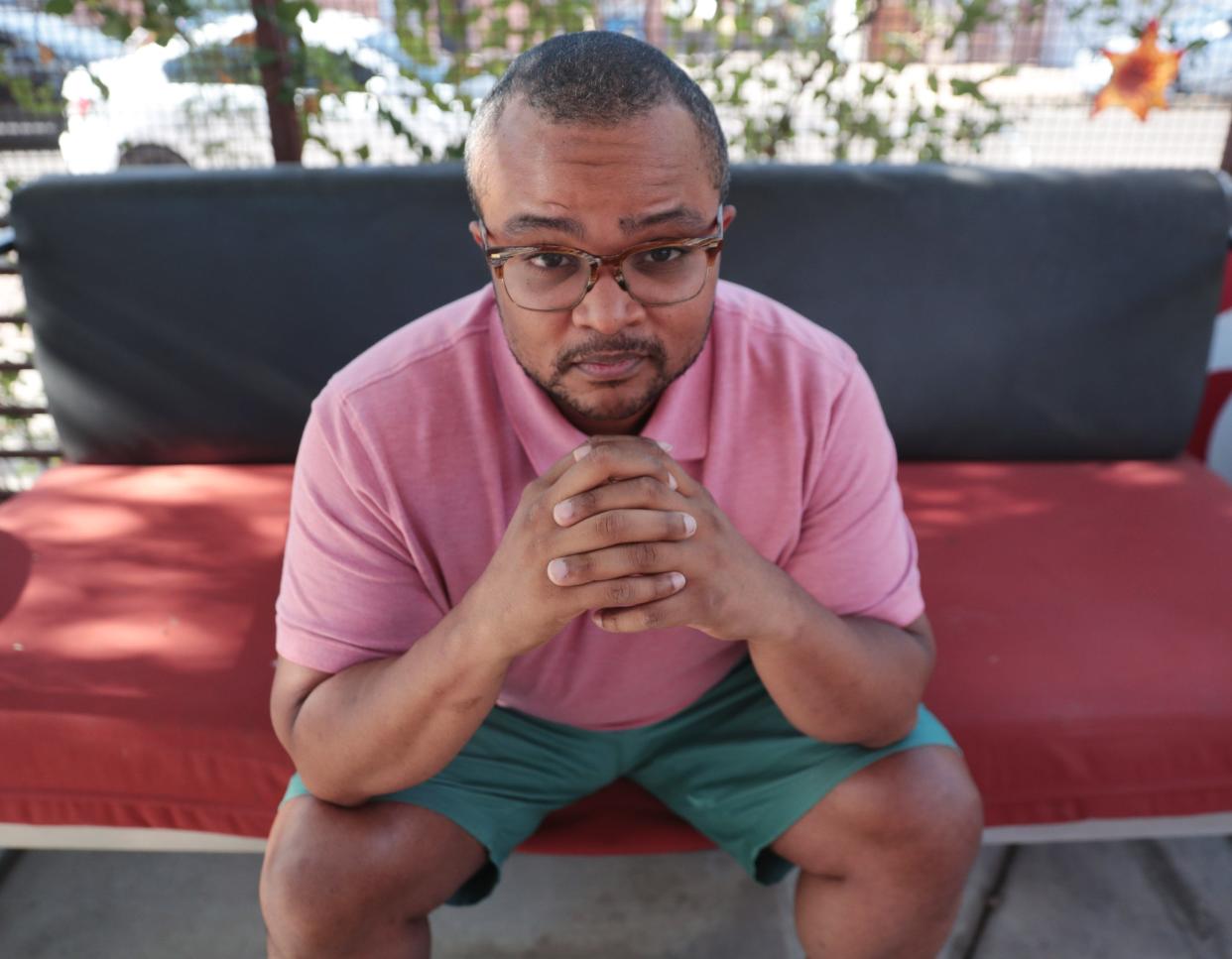
A Phoenix hip-hop artist took what he knew from the stage down to the street during the protests against police violence in 2020 and came out the other end as a social justice leader.
When he first came out to Phoenix from San Diego at 19, Jacob Raiford went by "J Roq" on stage, but it was a common name, so he began looking for a change, he explained.
"There's a really famous D.J. named J. Rocc from the Beat Junkies, and then of course, as time developed, there's Jay Rock from T.D.E ," the record label that's home to rapper Kendrick Lamar, he said, "and you know I just kind of grew out of my name."
He found it while performing weekly shows in Phoenix, he explained. Other performers and rappers filled the crowds at these weekly shows, so there was an aura of confrontation coming from the group, Raiford explained.
"I was taken aback by how the crowd wasn't engaging, so in the middle of my performance, I broke into this tirade as I would go to call it," he said.
For more stories that matter, subscribe to azcentral.com.
He began rapping about the crowd and their standoffishness. These tirades became his calling card any time he was on stage.
Raiford explained that he talked his name change over with hip-hop legend Chino XL.
"Chino said, 'Yo son, you should keep the tirade name,'" Raiford said.
Raiford liked that, but being "hard-headed," he wanted to keep part of his old name: Roq.
Not unlike his new hometown’s namesake, Raiford remade himself in the fire of on-stage conflict and came out as Roqy Tyraid.
About 15 years later, with four albums and a widespread indie fanbase, Raiford would go through another evolution in a different type of conflict.
Rapper steps up to lead protests against police violence in metro Phoenix
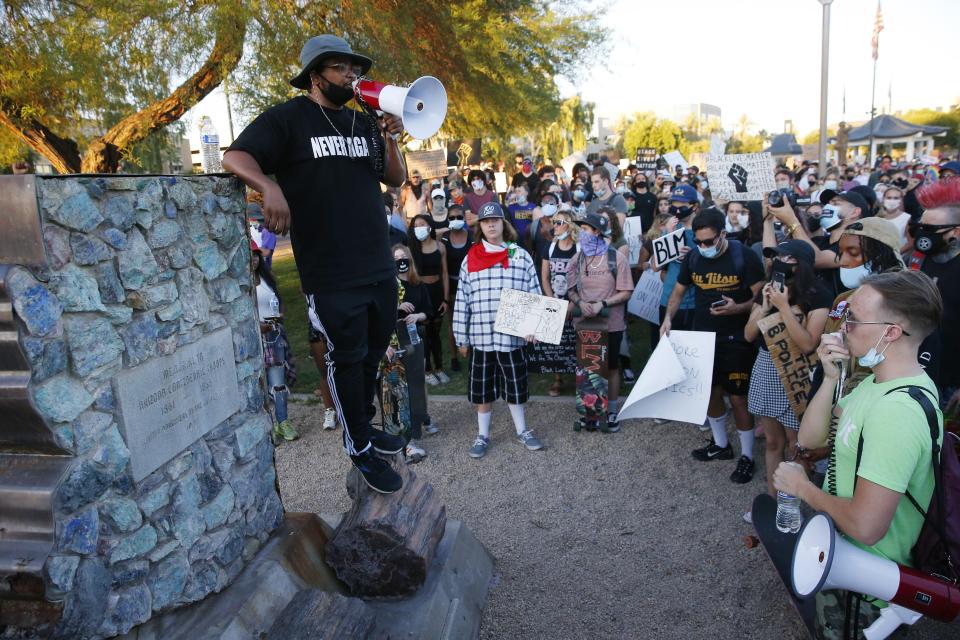
After the murder of George Floyd on May 25, tensions were high in almost every major American city. The summer heat had kicked off in Phoenix, people were antsy from two months of pandemic closures and the streets were getting primed for protests.
Raiford said he first heard of protests happening on Thursday, May 28, and felt worried about the people involved.
"There hadn't been a big season of demonstrations," he explained. He worried that some at the protests didn't know what to expect, didn't have the experience with police, or the dangers of "less-lethal" police munitions.
He and a group of others decided to show up to the protests, if nothing else, to provide support and first aid to anyone who might need it.
That Thursday night, things began to unravel, and the protests became chaotic and disorganized, he said.
"Sometimes a random person would like, get the idea and try and pull the crowd somewhere. Then they would just walk off, or they would start arguing with someone," he said.
Some of the crowd seemed to be wandering without direction, he explained, and that chaotic energy could end up hurting people if they didn't work together.
When he saw the same thing start to happen the following day, he felt he had to do something.
He tapped the decades of experience turning crowds at shows "into one collective conscious" to help create harmony, to help move the crowd with purpose.
That is what emcees do, he explained; they move the crowd.
And Raiford, as Roqy Tyraid, was the definition of an emcee, according to radio host and music producer Matt "Mattlocks" Kirkpatrick.
Kirkpatrick had helped Raiford produce his latest album, "Outbreak," in 2017.
"When you think of top tier lyricist, lyricism, in the state of Arizona, you have to mention his name," he said, 'like when you think of people who are the definition of an MC, of a wordsmith, and very lyrical, he's gotta be mentioned in these circles."
How Raiford sees it, the real power behind protests is opening up a conversation with thousands of people, getting to expose the issues of police brutality and systemic racism to everyone there.
Raiford's history as Roqy Tyraid prepared him for breaking into talks on these complex issues.
Tyraid’s style revolves around being informed, whether that was pop culture, governments, or laws, according to Kirkpatrick.
Looking at Tyraid’s lyrics, references to anime like "Dragon Ball Z" are as common as references to state bills like House Bill 2309, which would have created a new crime called "violent or disorderly assembly" and harshened penalties for crimes committed during them.
W.E. Rising Project born out of protests
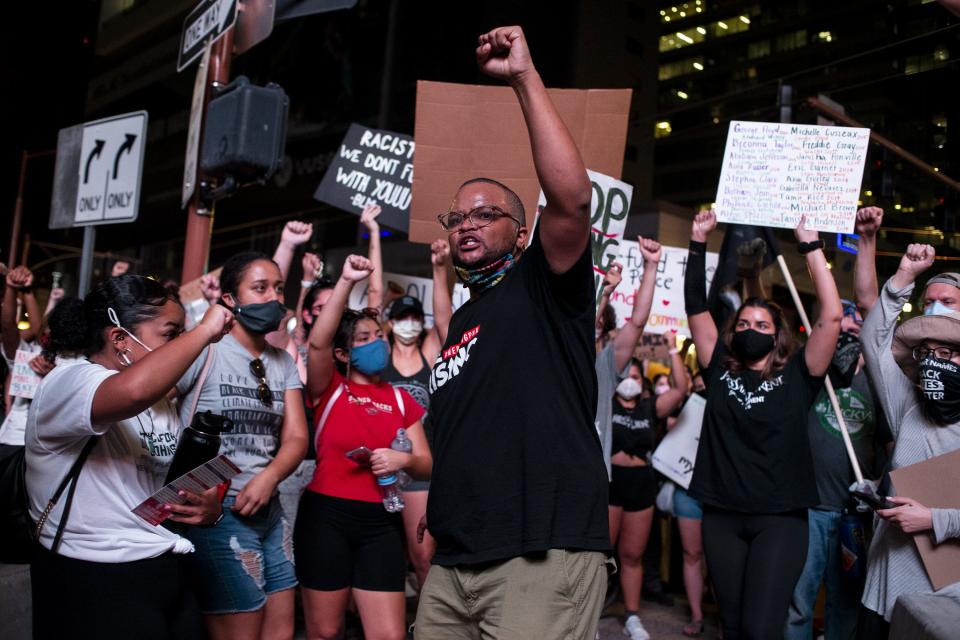
The week following the protests, he and others met up at a restaurant to talk over the elements of the demonstrations that needed to get organized and discuss Gov. Doug Ducey’s imposed curfew.
The group came up with a plan to organize peaceful protests: "That's where the original W.E. Rising protests came from," Raiford explained.
W.E. Rising Project was a community organization that described itself as a movement to create systemic change through peaceful protests and legislation. The group organized more than 20 protests in the wake of Floyd's death.
"And the next thing you know, you're in the middle of July, and you've been protesting for the majority of the summer at that time," he said.
Leading protests grows into organizing, activism
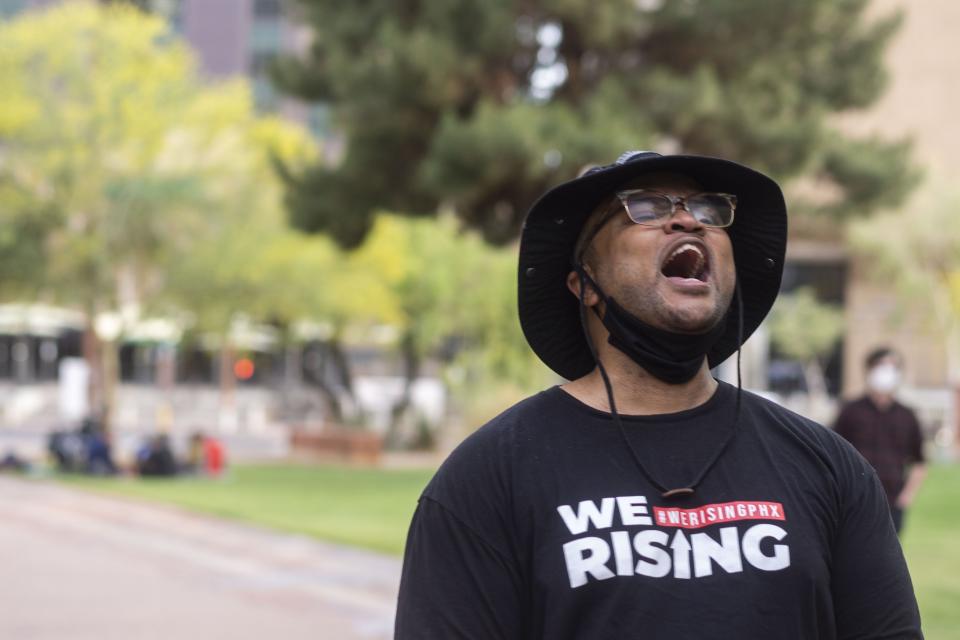
The group established connections with other organizations, including the Black Mothers Forum, dedicated to ending the school-to-prison pipeline for Black children in metro Phoenix.
Janelle Wood, founder of Black Mothers Forum, said that Raiford's ability to collaborate is what first struck her about him.
"He will spend hours upon hours working with whoever he needs to work with to find a solution to the problem," she said.
From W.E. Rising, Raiford shifted into working on the Tempe Public Safety Advisory Task Force, a board created to start a dialogue between the community and Tempe police.
Going from the streets to sitting down and talking policies with policymakers came organically, Raiford explained.
"It's like a freestyle. You know what you can say, but you just let it naturally evolve," Raiford said. "OK, we're talking about all this stuff from our protesting. We help create a progressive outlook in the city. How can we change some of these things that we've been complaining about? How can we put action out there? How can we be proactive instead of reactive?"
Woods explained that sitting at that table with the city takes strength and a resilience to stand your ground. Those elements were something she saw in Raiford, and it was something Roqy Tyraid developed at music venue parking lots, battling other rappers.
"He does not step back when leaders push back on him, especially leaders within the police department," she said, "I've watched him in those meetings, never backs down on pointing out the brutality and despaired treatment that his age group oftentimes encounters when they have interactions with the police."
Rapper now leading effort to establish Phoenix crisis-response program
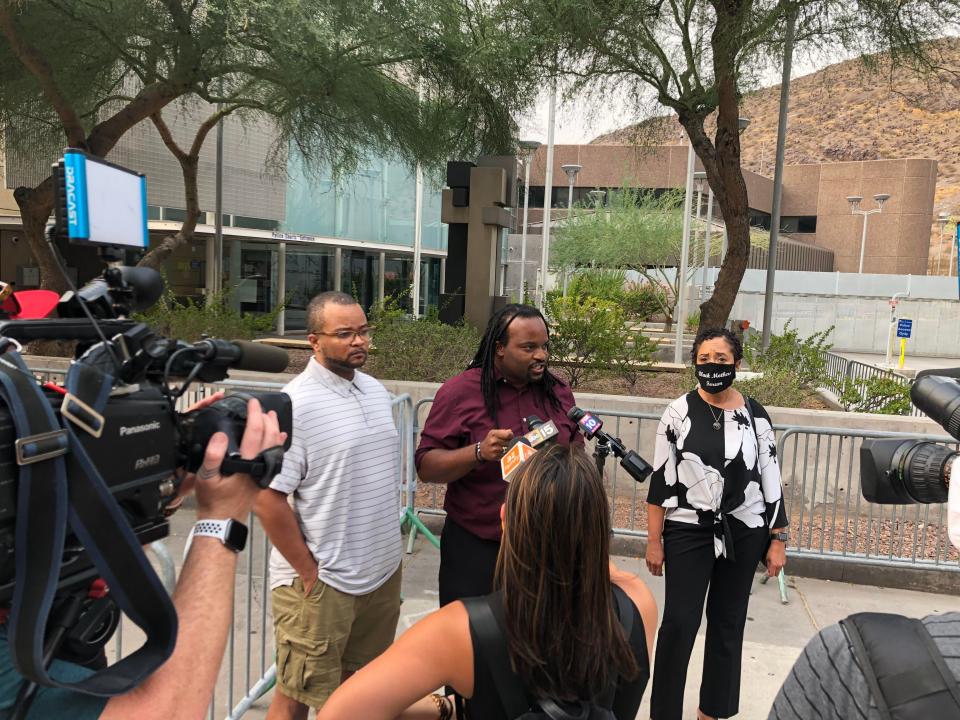
These meetings would eventually lead W.E. Rising and other community organizations to put together the idea behind the Neighborhood-Organized Crisis Assistance Program, or NOCAP.
Raiford explained the coalition behind NOCAP believe the city could curb police violence in Phoenix by creating a department of counselors and mental health professionals.
This department would stand on its own and respond to non-violent emergency calls instead of police.
The NOCAP coalition pressed Phoenix City Council to redirect police funding, establish more civilian oversight, and include more community input into their programs.
"We see that there's police officers that should not have been involved in these issues in the first place," he said, "And when we create a new department that's able to impact this from a proactive standpoint, we can preemptively save lives."
The city eventually moved funding into the existing Community Assistance Program in the Phoenix Fire Department, which answers non-violent calls with trained counselors and medical professionals.
A year after the protests, Raiford felt shocked how fast his life had shifted, but the move from Roqy Tyraid on the mic to Raiford on the megaphone felt less like an instant switch and more like slow transformation.
"The stage became the pavement, and the concert attendees became the protesters, and the music became the message," he said.
And true to the Roqy Tyraid style, he added, “It's like Pokemon, it just evolved from Mew to Mewtwo. So, it really is one and the same."
Reach breaking news reporter Miguel Torres at Miguel.Torres@arizonarepublic.com or on Twitter @MTorresTweet.
This article originally appeared on Arizona Republic: How Arizona rapper Roqy Tyraid became a protest leader, then activist

